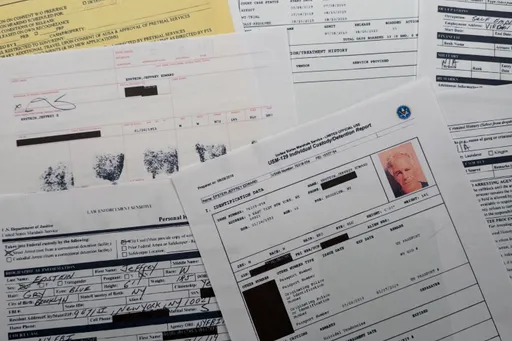On a recent visit to Lithuania, the birthplace of his grandmother, Israeli Prime Minister Benjamin Netanyahu declared that that he sees 'no urgency' in advancing US President Donald Trump's peace plan or what is commonly referred to as the ‘ultimate deal’ or ‘deal of the century’. “It is his business if he wants to promote it,” he added.
Netanyahu’s comments came soon after Trump suggested Israel will “pay a higher price” in the negotiations because of the embassy move and that it was “the Palestinians’ turn next", adding that the Palestinians will get “something very good” in peace negotiations following his decision to relocate the American embassy in Israel to Jerusalem. Trump made the comments at the end of one of his rallies in West Virginia. He did not indicate what this might be.
Contact between the Palestians and the US have been frozen on the orders of Palestinian President Mahmoud Abbas, following the US recognition of Jerusalem as the capital of Israel and the subsequent move of the Embassy from Tel Aviv.
The next announcement from his administration was hardly a confidence-building measure or an incentive for the Palestinians to restart talks with the Americans.
In what the Palestinians saw as “the use of cheap blackmail as a political tool”, the Trump Administration recently decided to cut more than $200 million in bilateral assistance to the Palestinians, following a review of the funding for projects in the West Bank and Gaza, according to US officials.
Commenting further on the matter, PLO Executive Committee member Hana Ashrawi stated that “the Palestinian people and leadership will not be intimidated and will not succumb to coercion. The rights of the Palestinian people are not for sale.”
Husam Zomlot, the Palestinian Liberation Organization’s envoy to the US, said in a statement that the Trump administration “is dismantling decades of US vision and engagement in Palestine.” Zomlot saw the recent move as “another confirmation of abandoning the two-state solution and fully embracing Netanyahu’s anti-peace agenda.”
Zomlot was also referring to Trump’s decision to defund UNRWA, the United Nations Agency which delivers services to the Palestinian refugees and his attempts to find ways to remove the refugee status of the overwhelming majority of the Palestinians still living in exile since 1948 claiming the status should not be inherited.
Aid cuts to the Palestinians continued as the Trump administration announced it was ending its contribution to the United Nations Relief and Works Agency (UNRWA), having withheld $45 million back in January. This leaves the Agency with a $417 million deficit, which if not cleared would mean school closures for 500,000 children in its five areas of operation at the end of September.
The collapse of UNRWA would be disastrous for Palestinians but will be welcomed by Netanyahu who has argued that it ‘perpetuates’ the issue of the refugees.
Recently leaked emails confirmed Trump’s senior advisor and son-in-law Jared Kushner has tried to convince King Abdullah of Jordan to end the refugee status of 2 million Palestinian residents living in Jordan as the US attempts to significantly reduce the number recognised from the current 5 million to a much smaller number.
In fact, with seemingly unlimited support from Trump and his pro-Israel ‘negotiating team’, Netanyahu is working to gain as many more wins as possible in what he sees as uniquely favourable times.
Netanyahu has already contributed significantly to convincing the US to pull out of the Iran nuclear deal and the imposition of severe sanctions on the Islamic Republic, and is demanding Iran pulls all its troops out of Syria. While he has not as yet succeeded in this, he will keep plugging away and may yet pull this off.
Next on the Israeli prime minister’s agenda is the status of the Syrian Golan Heights, occupied by Israel in 1967 and effectively annexed in 1981. His Intelligence Minister Yisrael Katz describes endorsement of Israel’s 51-year-old hold on the Golan as the proposal now 'topping the agenda' in bilateral diplomatic talks with the United States.
In a recent visit to Israel, Trump’s National Security Adviser John Bolton dampened Israeli hopes of of imminent recognition claiming “I’ve heard the idea being suggested but there’s no discussion of it, no decision within the US government.”
However, Netanyahu will surely continue to pursue it. With such wins in record time and at zero cost, it is perhaps not surprising that Netanyahu is “in no hurry for peace”.
What about the Palestinians?
The Palestinians are facing the most challenging period in their history since the Nakba. The division between Hamas and Fatah, the 11-year long siege on Gaza, US blind support for Israel and the changing geopolitics in the Middle East puts them in an extremely weak bargaining position.
However, should they see any hope in Trump’s comments in West Virginia that he really has “something very good” to offer them, what could that be?
Interestingly, there have been no leaks about what this may mean for the Palestinians, unlike leaks that preceded announcements of pro-Israel measures such as the embassy move or the attack on UNRWA.
Trump is unlikely to recognise East Jerusalem as the capital of a future Palestinian state, include a two-state solution in his plan, pressure Israel to accept any Palestinian refugees, pressure Israel to end settlement construction or to bring an end to the 11-year old siege on Gaza. Netanyahu would not agree to any of these but more importantly, it is difficult to expect Trump’s pro-Israel team to even suggest any of these.
Speculation on this has to be based on how any initiative would address the core issues to be resolved in the conflict. They have generally been acknowledged to be borders, Jerusalem, settlements and the refugees. If Trump believes he has taken Jerusalem off the table, is minimising the issue of the refugees, making no noises about increased settlements construction and not even mentioning a two-state solution, then it is highly unlikely that he can offer the Palestinians anything that they could accept.
The American president, a businessman, is likely to see “something very good” simply in terms of an improved economy or ‘money’, while taking into account ‘facts on the ground’ as Israel presents them to him and its unending security needs.
This could come in the form of economic development in Gaza or the northern Sinai, as leaks indicating Egypt may be called upon to cede some 700 km of the Sinai for an expanded Gaza, where an airport, seaport and possibly an electrical power plant could be based. There is talk about a railway line that links the Gulf States and Jordan with the Mediterranean through Israel and the OPTs, which could have stations in Palestinian territories.
With a weak and divided Palestinian leadership, an American administration which is completely on Israel’s side, Netanyahu is working overtime to secure further gains while Trump is in power and before he is impeached, since almost not a week goes by without some speculation that it might happen.
However, Netanyahu should rest easy in the knowledge that if Trump is impeached, he has in Vice President Pence a more committed and stable ally and supporter of Israeli policies. He will be in no greater hurry to deliver a 'just peace' than Trump or Netanyahu. The Palestinians will continue to suffer.























